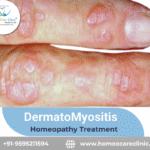Retinal Detachment
It is a severe eye condition in which the retina-a thin layer of tissue at the back of the eye responsible for vision-pulls away from its usual position. Many ophthalmologists describe it as a medical emergency. Retinal detachment needs immediate attention to prevent permanent loss of vision. The article will discuss causes, symptoms, diagnosis, and available treatment for detached retinas in order to enlighten on what is often an ignored but very important aspect of eye health.
Types Retinal Detachment
Retinal detachment can be classified into three main types based on the underlying cause:
1. Rhegmatogenous Retinal Detachment
This is the most common type and occurs due to a tear or hole in the retina, allowing fluid from the vitreous to seep underneath and separate the retina from the underlying tissue.
Causes:
- Aging-related changes in the vitreous (posterior vitreous detachment).
- Trauma or injury to the eye.
- Severe nearsightedness (myopia).
2. Tractional Retinal Detachment
This occurs when scar tissue or membranes on the retinal surface pull the retina away from the back of the eye.
Causes:
- Diabetic retinopathy (a complication of diabetes).
- Other conditions causing inflammation or abnormal blood vessel growth.
3. Exudative (Serous) Retinal Detachment
This type occurs when fluid accumulates beneath the retina without any tear or hole.
Causes:
- Inflammatory conditions such as uveitis.
- Tumors affecting the eye.
- Systemic diseases like hypertension or preeclampsia.
Comparison of Types
| Type | Cause | Key Feature |
|---|---|---|
| Rhegmatogenous | Retinal tears or holes | Fluid leaks under the retina from vitreous. |
| Tractional | Scar tissue pulling the retina | Mechanical pulling detaches the retina. |
| Exudative (Serous) | Fluid buildup due to disease | No tear; caused by fluid accumulation. |
Signs to Watch For in All Types
- Sudden onset of floaters or flashes of light.
- Blurry or distorted vision.
- Loss of peripheral vision or a shadow appearing in your sight.
Each of these retinal detachments requires immediate medical attention, and the treatments may vary depending on the cause and severity of the detachment. Early detection and treatment are crucial for preserving vision and preventing permanent loss of vision.
Retinal Detachment Causes
- Aging and Degeneration:
- With age, the vitreous (a gel-like substance in the eye) shrinks, leading to retinal tears.
- Common in individuals over 50 years.
- Severe Myopia (Nearsightedness):
- People with high myopia have a thinner retina, making it prone to detachment.
- Eye Injuries or Trauma:
- Blunt or penetrating injuries can cause retinal tears or detachment.
- Previous Eye Surgery:
- Surgeries like cataract removal may increase the risk of retinal issues.
- Family History:
- A genetic predisposition can make certain individuals more susceptible.
- Retinal Diseases or Conditions:
- Diabetic retinopathy or inflammation may lead to fluid buildup under the retina.
Detached Retina Symptoms
- Visual Disturbances:
- Sudden flashes of light (photopsia).
- A significant increase in floaters (small spots or cobweb-like shapes).
- Blurred Vision:
- Sudden or progressive loss of clarity in the affected eye.
- Shadow or Curtain-like Effect:
- A dark shadow or “curtain” appears over part of the field of vision.
- Peripheral Vision Loss:
- Gradual loss of side vision.
- Painless Progression:
- Retinal detachment is typically painless, making symptoms the only warning sign.
General Approach
The goal of treating a detached retina is to reattach it and limit further vision loss. Treatment usually depends on the severity and location of the detachment. Surgery may be necessary to reattach the detached retina in many cases, using procedures such as pneumatic retinopexy, scleral buckling, or vitrectomy. In all these techniques, a tear or break in the retina is closed by coagulation or laser, and/or reattaching the retina to its usual position is attempted. Sometimes, laser therapy and cryotherapy may be applied to seal off the retinal tear in order to prevent further detachment.
Homeopathic Detached Retina Treatment
The treatment approach for retinal detachment in homeopathy is highly individualized and considers the roots of causes, symptoms, and the overall health of the individual. Even though there is no single remedy for detached retina, homeopathic doctors may consider different remedies depending on the distinctive symptomatology and features of the individual case. Here are retinal detachment medicines
Homeopathy Medicines for Retinal Detachment
- Aconitum napellus: When the symptoms arise suddenly, with sudden changes in vision or extreme fear attending upon the condition, this remedy may be indicated
- Arnica montana: Arnica is usually used where there is trauma. Hence, in cases where the detached retina follows physical injury or trauma to the eye, Arnica might be prescribed to promote the healing process and reduce inflammation.
- Belladonna: The medicine belladonna is indicated when symptoms of intense pain, photophobia, and dilated pupils along with the detached retina are present.
- Phosphorus: Cases where there has been a bleeding tendency in the past, or when visual disturbances such as flashes of light or floaters present, phosphorus may be prescribed.
- Silicea: Silicea may be thought of in chronic affections of the eyes when there is a history of weakness in the eye, this are retinal detachment medicine. Click here to order your Medicine
FAQs Homeopathic and Retinal Detachment
- What is retinal detachment?
Medical term describing the retina, which is the thin layer of tissue lining the back of the eye responsible for vision, pulling away from its usual position. If it is not treated right away, it may cause vision loss.
- What is the cause of the problem?
The common causes of detachment of the retina are age, trauma to the eye, other eye diseases such as diabetic retinopathy, and congenital.
- What are the symptoms of a detached retina?
The symptoms of detached retina may include the sudden onset of floaters (small spots or cobwebs in vision), flashes of light, a curtain-like shadow over the field of vision, or a sudden deterioration of vision.
- Is a detached retina treatable?
Yes, the detached retina is treatable, but immediate medical concerns must be observed. Treatment alternatives may include surgery, laser treatment, or cryotherapy to reattach the retina and prevent further vision loss.
- Can a detached retina cause permanent vision loss?
Without treatment, retinal detachment can lead to permanent vision loss in the affected eye. In many instances, however, prompt treatment can reduce or eliminate loss of vision.
In conclusion
Homeo Care Clinic offers a holistic approach to treating the disease. The remedies mentioned above can treat the underlying causes of the condition and offer relief from the discomfort. However, it is important to consult a qualified homeopathic practitioner for the correct dosage and duration of treatment. Homeo Care Clinic provides comprehensive care for various ailments, and offers customized treatment plans based on individual requirements.
To schedule an appointment or learn more about our treatment, please visit our website or give us a call +91 9595211594 Our friendly staff will be happy to assist you. If you’re searching for the best homeopathy doctor, we are here to help.
Follow us on Facebook, Twitter, and Instagram for valuable insights into the world of homeopathy and holistic health.
Facebook – https://www.facebook.com/homeocareclinicpune
Instagram – https://www.instagram.com/homeocareclinic_in
Website – https://www.homeocareclinic.in
Chat with a best homeopathic doctor privately
If you have any queries regarding your disease or any symptoms, Click to send a WhatsApp message. Our best homeopathy dr will be happy to answer you.
Book an Appointment
If you want to visit our clinic, Click to book an appointment.
Online treatment
If you are a busy professional, or you are living in a remote town or city, with no best homeopathic doctor near you, Click to start an online homeopathic treatment with the world’s exclusive, most experienced and best homeopathic clinic, managed by Dr. Vaseem Choudhary world-renowned homeopathic doctor







